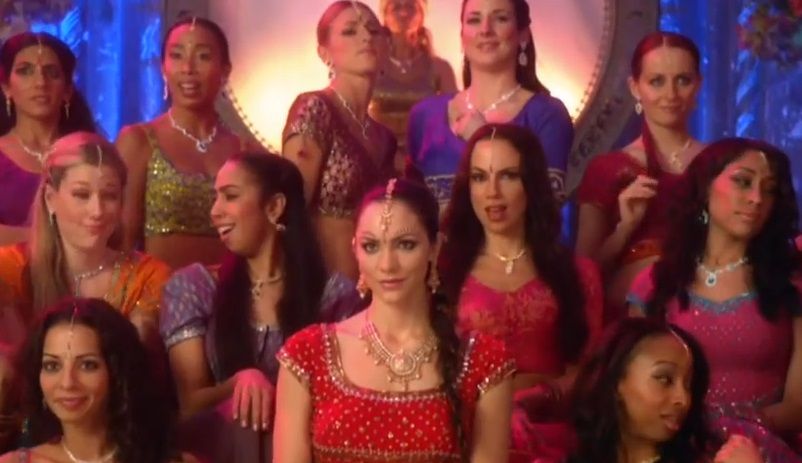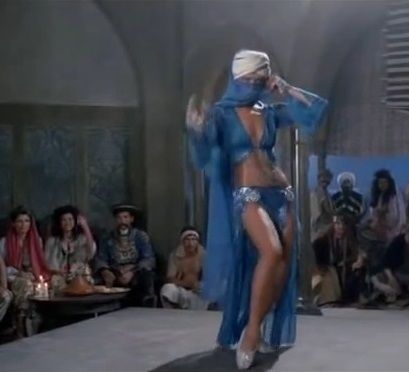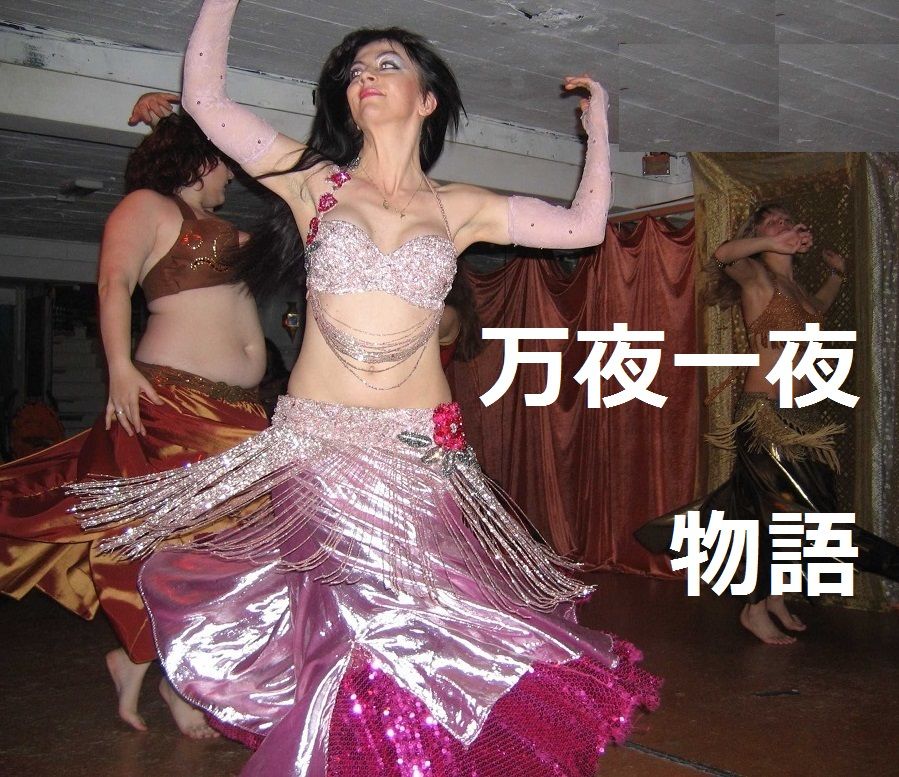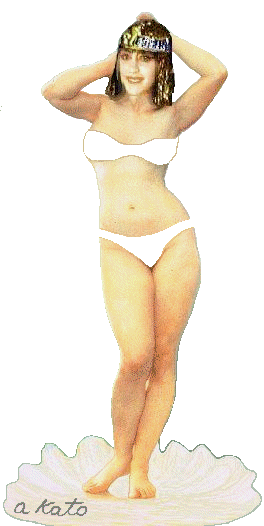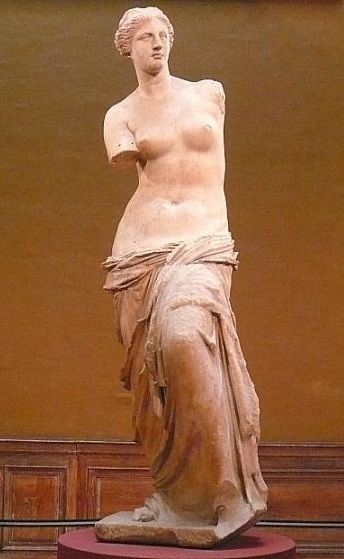Quartet (PART 1)

(wed03.jpg)

(quartet7.jpg)

(diane02.gif)
Kato, did you attend your friend's wedding recently, huh?

(kato3.gif)
No, I didn't... Why do you ask me such a question?
Well..., it's obvious that you've pasted a clip of Johann Pachelbel's 《Canon in D Major》, which has been used frequently in weddings these days.
I see... Diane, you're quite knowledgeable about today's wedding fad, eh?
It's commen sense, isn't it?
Oh...? I didn't know that.
Then how come you pasted the above photo of the wedding string quartet?
Well..., I've recently watched the following movie:

(quartet1.jpg)

(lib90522a.png)
■"Enlarge it!"
■"Actual Page"

My Comment
Directed by Dustin Hoffman in 2011 based on the play Quartet by Ronald Harwood, this British drama depicts the lives at Beecham House---a retirement home for former professional musicians, patterned after the real-life Casa di Riposo per Musicisti founded by Giuseppe Verdi.

(quartet8.jpg)
Although the cultured Englishfolk live peacefully in a beautifully maintained residence for retired musicians, the film lacks a real drama with turns and twists.
The story appears predictable and lack-lustre.
Quartet

(quartet2.jpg)
PLOT
The drama takes place in Beecham House, where live Reg, Wilf and Cissy who often worked together in the past.
Among other residents are Cedric Livingstone, a former director, and diva Anne Langley.
All the guests in the retirement home continue to be engaged in their former professions in one way or the other, including lecturing and initiating young people to music.
Finances threaten closure of the home, but proceeds from a yearly gala concert on Verdi's birthday hold hope for a continuation of the place.
However, Cedric has become rather desperate because some of the most prominent singers have either died or decided not to participate at all.
Reg, Wilf and Cissy were in the cast of a very highly rated recording of the opera Rigoletto, which includes a famous quartet for soprano, mezzo-soprano, tenor and baritone ("Bella figlia dell'amore").
This version is very prominent among opera buffs as "the Rigoletto" of the post-war era.
One day, Reg is shocked to find his former wife Jean Horton, the missing soprano of the Rigoletto recording, turning up to live at Beecham House.
Reg is angry not to have been warned as their parting was on very sour terms.
At first, Jean tries unsuccessfully to mend things with Reg.
In the ensuing conversations her infidelity arises, as well as her past marriages, but Reg comes to understand that all that is past.
In the meantime, Wilf and Cissy convince Cedric that bringing together those who sang the quartet on the famous recording to sing it again for the Verdi Gala concert will sell enough tickets to save the home.
Enchanted with the idea, they persuade Reg to overcome his objections to performing with Jean again.
However, she is harder to persuade as she vowed never to sing again after retiring.
Cissy takes Jean flowers from the garden to cheer her up, and asks if she wishes to discuss the quartet, but Jean becomes violent and attacks Cissy, which only aggravates Cissy's already delicate senile condition.
Jean apologises and is finally persuaded to sing in the quartet from Rigoletto, after learning that Anne Langley will be singing "Vissi d'arte" from Tosca.
The group prepares for their performance and, moments before their curtain call, Cissy gets very confused and attempts to walk out the door, saying that she has to go back to her family, but Jean manages to salvage the situation.
During her conversation with Cissy, Jean expresses regret for all her past bad behaviour towards Reg and admits that she is still in love with him.
Reg overhears this.
Just as the recital is about to start, the director of the home is amazed at the energy displayed by the guests of the home.
The idea of rehearsing and playing before an audience brings life back to them, leading her to the conclusion that old age and art go together.
SOURCE: "Quartet (2012 film)"
From Wikipedia, the free encyclopedia

I see... So, you viewed the above movie on May 14, didn't you?

Yes, I did... and I jotted down the above comment.
Kato, you wrote down, "The film lacks a real drama with turns and twists. The story appears predictable and lack-lustre."
Yes, I did... Is there anything wrong with my impression?
Well..., I see some romance among the residents... Don't you think that's good enough for the elder folks?
I don't think so... I wanna see more excitement and surprise in the movie.
Like what?
You know... The above movie was directed by Dustin Hoffman, who got an inspiration viewing the following documentary:

(lib90522b.png)
■"Enlarge it!"
■"Actual Page"

(tosca01.jpg)

My Comment
Directed by Daniel Schmid in 1984, this 87-minute Italian documentary depicts the lives at the Casa di Riposo per Musicisti of Milan, the world's first nursing home for retired opera singers, founded by composer Giuseppe Verdi in 1896.

(tosca06.jpg)
Dustin Hoffman cited this film as a direct inspiration for his 2012 film "Quartet".
If you're a music lover in general and an opera fan in particular, this is a must-see.

So, Kato, you're saying that the documentary appears much better than Hoffman's movie, huh?

Yes, that's quite right... You see, all the people in the documentary are real people, I mean, the retired opera singers and musicians who sing arias and play the music marvellously---even after their retirement... I was thrilled and fascinated---this excitement and fascination, which I couldn't get from the Hoffman movie, seems like a rare godsend.
Kato, you're exaggerating!
Oh, am I?
So, you've just brought up the above title---just to tell me about your excitement and fascination, huh?
Well..., there's more to it.
What else are you talking about?
The Casa di Riposo per Musicisti of Milan is the world's first nursing home for retired opera singers, founded by composer Giuseppe Verdi in 1896... Diane, do you know him?
I have never met him, but I know that he composed the world famous opera 《Aida》...

(aida02.jpg)
Set in the Old Kingdom of Egypt, it was commissioned by Cairo's Khedivial Opera House and had its première there on 24 December 1871, in a performance conducted by Giovanni Bottesini.
Today the work holds a central place in the operatic canon, receiving performances every year around the world.
At New York's Metropolitan Opera alone, Aida has been sung more than 1,100 times since 1886.
Ghislanzoni's scheme follows a scenario often attributed to the French Egyptologist Auguste Mariette, but Verdi biographer Mary Jane Phillips-Matz argues that the source is actually Temistocle Solera.
Setting
The libretto does not specify a precise time period, so it is difficult to place the opera more specifically than the Old Kingdom.
For the first production, Mariette went to great efforts to make the sets and costumes authentic.
Given the consistent artistic styles throughout the 3000-year history of ancient Egypt, a given production does not particularly need to choose a specific time period within the larger frame of ancient Egyptian history.
Backstory
The Egyptians have captured and enslaved Aida, an Ethiopian princess.
An Egyptian military commander, Radamès, struggles to choose between his love for her and his loyalty to the King of Egypt.
To complicate the story further, the King's daughter Amneris is in love with Radamès, although he does not return her feelings.
SOURCE: "Aida"
From Wikipedia, the free encyclopedia

So, Diane, you love his opera, eh?

Yes, I do.
Do you know, Diane, Giuseppe Verdi was an intensely private person?
Oh..., in what way?
Giuseppe Verdi

(verdi01.jpg)
10 October 1813 – 27 January 1901
He was born near Busseto to a provincial family of moderate means, and developed a musical education with the help of a local patron.
Verdi came to dominate the Italian opera scene after the era of Vincenzo Bellini, Gaetano Donizetti, and Gioachino Rossini, whose works significantly influenced him.
By his 30s, he had become one of the pre-eminent opera composers in history.
In his early operas, Verdi demonstrated a sympathy with the Risorgimento movement which sought the unification of Italy.
He also participated briefly as an elected politician.
Personality
Not all of Verdi's personal qualities were amiable.
John Rosselli concluded after writing his biography that "I do not very much like the man Verdi, in particular the autocratic rentier-cum-estate owner, part-time composer, and seemingly full-time grumbler and reactionary critic of the later years", yet admits that like other writers, he must "admire him, warts and all...a deep integrity runs beneath his life, and can be felt even when he is being unreasonable or wrong."
Budden suggests that "With Verdi...the man and the artist on many ways developed side by side." Ungainly and awkward in society in his early years,
"as he became a man of property and underwent the civilizing influence of Giuseppina,...[he] acquired assurance and authority."
He also learnt to keep himself to himself, never discussing his private life and maintaining when it suited his convenience legends about his supposed 'peasant' origins, his materialism and his indifference to criticism.
Mendelsohn describes the composer as "an intensely private man who deeply resented efforts to inquire into his personal affairs.
He regarded journalists and would-be biographers, as well as his neighbors in Busseto and the operatic public at large, as an intrusive lot, against whose prying attentions he needed constantly to defend himself."
Verdi was similarly never explicit about his religious beliefs.
Anti-clerical by nature in his early years, he nonetheless built a chapel at Sant'Agata, but is rarely recorded as going to church.
Strepponi wrote in 1871 "I won't say [Verdi] is an atheist, but he is not much of a believer."
Verdi today
The music of Verdi can still evoke a range of cultural and political resonances.
Excerpts from the Requiem were featured at the funeral of Diana, Princess of Wales in 1997.

(verdi02.jpg)
SOURCE: "Giuseppe Verdi"
From Wikipedia, the free encyclopedia

I see... Not all of Verdi's personal qualities were amiable. Verdi is NOT an atheist, but he is not much of a believer... Yet he founded the world's first nursing home for retired opera singers... Why is that?

Well..., it says that a deep integrity runs beneath his life, and can be felt even when he is being unreasonable or wrong. His generosity and benevolence has something to do with his deep integrity, I suppose.
I see... So his deep integrity made him found the world's first nursing home for retired opera singers, huh?
Yes, it did, I suppose.
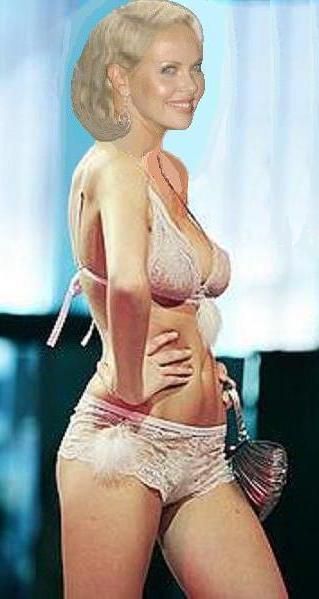
(dianelin3.jpg)

(laughx.gif)
(To be continued)























